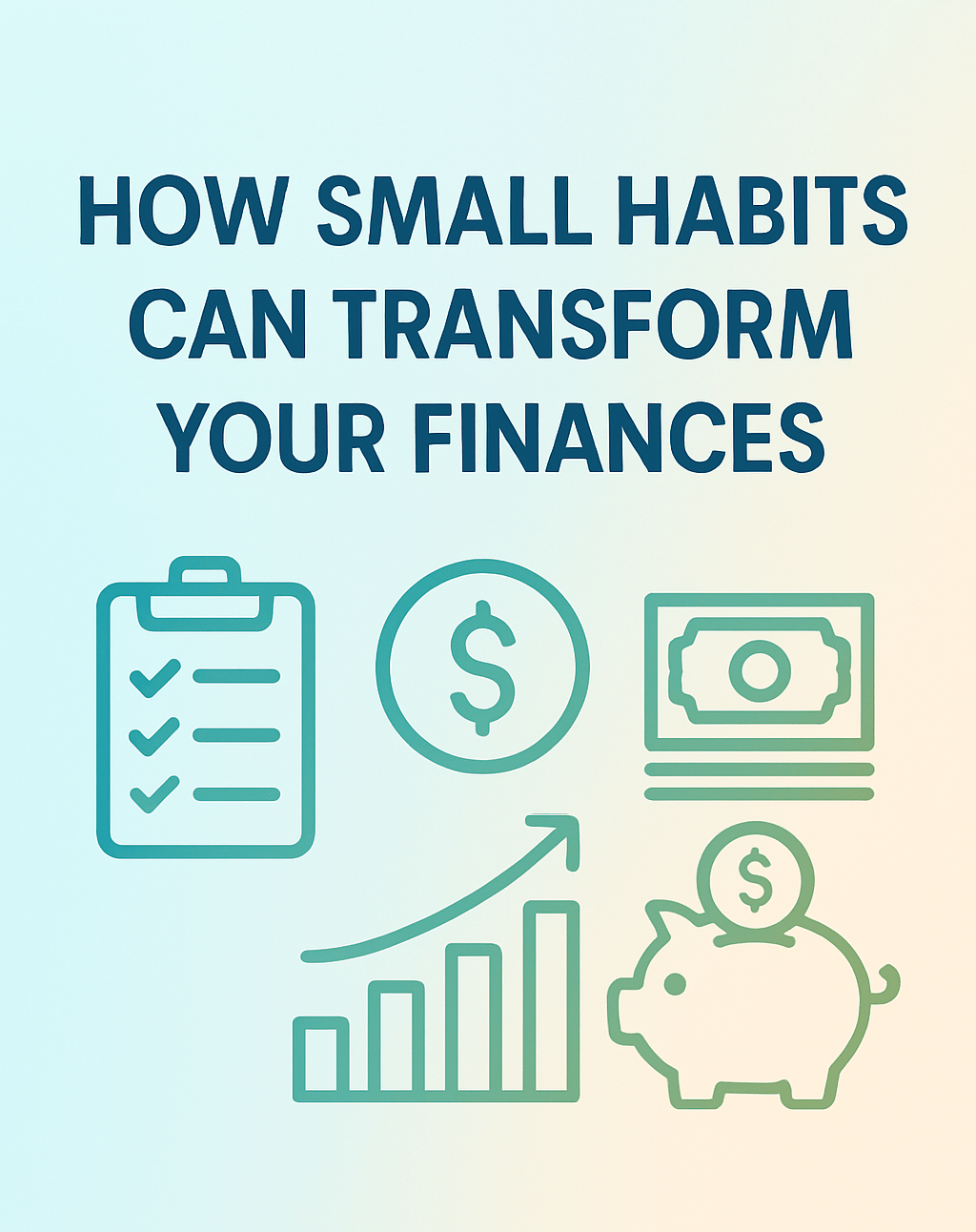How Small Habits Can Transform Your Finances
Discover how small daily habits—like tracking expenses and saving automatically—can transform your finances over time.
9/3/20253 min read


When most people think about improving their financial lives, they imagine huge, intimidating steps: saving thousands of dollars at once, quitting their job to start a business, or investing in something complex they barely understand. The reality, however, is much simpler—and more empowering. Real financial change starts with small, consistent habits.
These habits may look insignificant at first, but over time, they compound into powerful results. Think of them like drops of water that slowly fill a glass: each drop doesn’t seem like much, but eventually, the glass overflows. The same happens with money—your financial well-being is built not on sudden big actions, but on the steady rhythm of everyday choices.
1. Track Every Dollar (Awareness = Control)
The foundation of financial stability is awareness. If you don’t know where your money is going, you can’t control it. Start by tracking every single expense—from your rent or mortgage down to that quick coffee you grab on the way to work.
Use a simple notebook or a mobile app.
Review your expenses weekly.
Identify patterns and leaks (like subscriptions you forgot about).
This habit alone can feel like getting a raise, because suddenly you stop wasting money without realizing it.
2. Automate Your Savings (Consistency Beats Motivation)
Willpower is unreliable. If you wait until the end of the month to save “what’s left,” you’ll rarely save anything. Instead, flip the script: pay yourself first.
Set up an automatic transfer on payday.
Even $20 or $50 a week makes a difference.
Treat savings as a non-negotiable bill.
Over time, these small contributions grow thanks to compound interest. Imagine saving just $50 per week for 10 years at a modest 6% return—you’d have more than $35,000.
3. Avoid Impulse Purchases (The 24-Hour Rule)
Modern marketing constantly pushes us to buy things we don’t need. To fight back, adopt the 24-hour rule:
Whenever you feel the urge to buy something non-essential, wait one full day.
If after 24 hours you still feel it’s worth it and it fits your budget, go ahead.
Most of the time, the impulse fades and you save your money.
This single habit can save you thousands over the years.
4. Learn While You Earn (Financial Education as a Habit)
Money is not just about earning—it’s about managing wisely. The more you learn, the better your decisions will be. Commit to weekly financial learning:
Read one chapter of a personal finance book.
Listen to a podcast on investing or budgeting.
Watch a 10-minute educational video.
Over time, you’ll build financial literacy, and small pieces of knowledge will add up to smarter choices—like negotiating better interest rates, investing with confidence, and avoiding scams.
5. Prioritize Long-Term Goals (Your “Why” Matters)
Financial discipline is easier when you have a clear reason for it. What are you really working toward?
Buying your first home
Building an emergency fund
Traveling the world without debt
Retiring early with peace of mind
Write your goals down and revisit them regularly. When you remind yourself of the bigger picture, skipping unnecessary expenses today becomes a powerful act of self-investment.
6. Build Habits of Gratitude and Patience
Money is emotional. Many people spend not because they need something, but to fill an emotional gap. A powerful small habit is practicing gratitude:
Write down three things you’re grateful for daily.
Recognize the value of what you already own.
Learn to wait before upgrading to the “next big thing.”
This mindset shift reduces unnecessary spending and increases your overall satisfaction in life.
Final Thoughts
Transforming your finances does not require drastic overnight changes. What it really requires is discipline, patience, and small daily actions repeated over time. These little habits are like seeds—you plant them today, nurture them tomorrow, and watch them grow into financial security and freedom.
The good news? You don’t need to be rich to start. You just need to start.
💡 Key takeaway: Your financial future isn’t shaped by rare, dramatic events—it’s built by the quiet consistency of the choices you make every day.